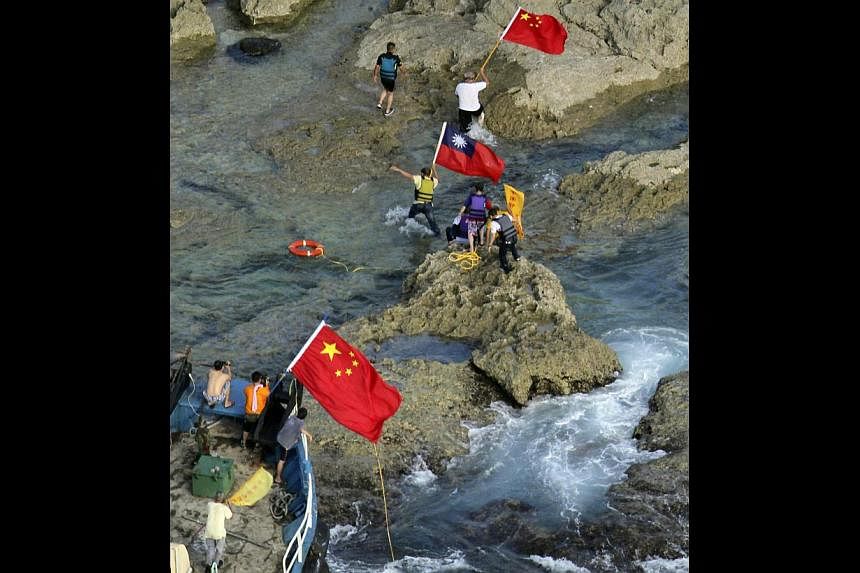JAPAN has released declassified diplomatic archives indicating that both China and Taiwan started asserting their ownership of the Japanese-administered Senkaku islands only from 1971.
China and Taiwan, which call the islands Diaoyu and Tiaoyutai respectively, stepped up their claims over the cluster of rocky outcrops after a United Nations survey hinted at possible oil deposits in the East China Sea.
The archives, released on Thursday, also reveal that Japan had in May 1971 asked Taiwan to refrain from pressing its claim to the islands in exchange for Tokyo's support for Taiwan's efforts to retain its seat at the United Nations. The request was made by then foreign minister Kiichi Aichi at a meeting in Tokyo with Taiwan's ambassador to the United States when Taipei was about to lose its UN seat.
Tokyo had wanted to avoid stirring up the Japanese public over the Senkaku issue at a time when it was discussing the reversion of Okinawa with the US. The documents show that Taiwan agreed to try to "cool down" issues related to the islands.
Yesterday, Chinese media accused Japan of releasing the archives to challenge China's "centuries-long sovereignty" over the islands.
But a Japanese foreign ministry official said: "The Senkaku islands are clearly an inherent part of the territory of Japan, in light of historical facts based upon international law."
Chinese officials did not comment.
Professor Koichi Sato, a China scholar at J.F. Oberlin University in Tokyo, describes China's claim to centuries-long sovereignty over the Senkakus as "false".
"The Senkakus were uninhabited islands that were used as a navigational marker for seafarers travelling between the Ryukyu Kingdom and China. China never claimed the islands as their territory," he pointed out.
The Ryukyu Kingdom is modern-day Okinawa, which now has jurisdiction over the Senkakus.
Chinese experts said the declassified archives are not likely to further worsen bilateral ties with Japan as Tokyo has been making similar claims since the island dispute flared up in 2012.
"Even if you tell a lie a thousand times, it doesn't mean that it can become the truth," Professor Liu Jiangyong of Tsinghua University, an expert on Sino-Japan relations, told The Straits Times.
He said releasing the documents might backfire on Japan as it gives China an opportunity to clarify and show evidence of its rightful claims instead.
China claims it had reached a political consensus with Japan to put aside the issue when the two countries normalised diplomatic relations in 1972.
But Tokyo denies there was any such deal and insists it has no territorial dispute with China.
Amid strained ties between the Asian giants, the 120th anniversary of the Sino-Japanese War of 1894-95 yesterday reopened old wounds, with Chinese state media insisting that Japan remains a "security threat".
"The same old ghost of expansionist Japan is lurking next door, causing a contagious sense of insecurity throughout the region," the official English-language China Daily said in an editorial.
"We cannot afford to not be vigilant, because (Prime Minister) Shinzo Abe's Japan is strikingly similar to the Japan of 120 years ago. International concerns about the likelihood of history repeating itself in Northeast Asia are not groundless," it added.
In all, Tokyo released 86 volumes of diplomatic archives, 19 of them related to Okinawa.
Additional reporting by Esther Teo in Beijing

